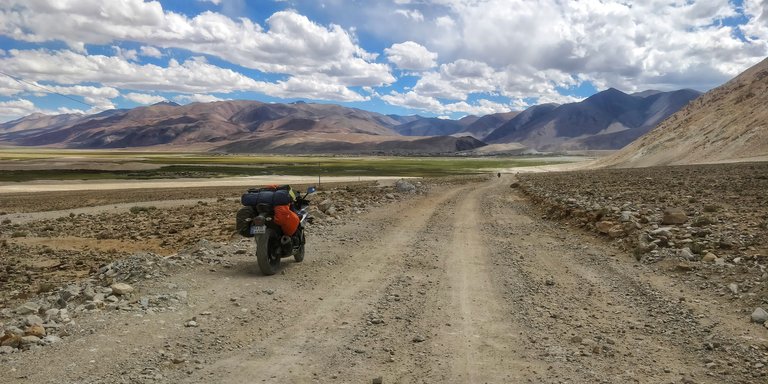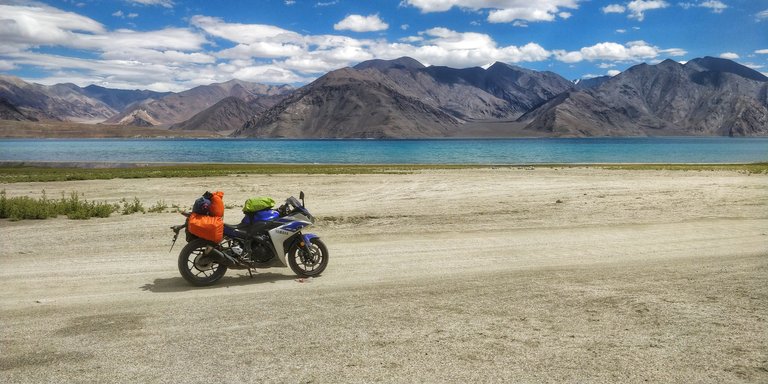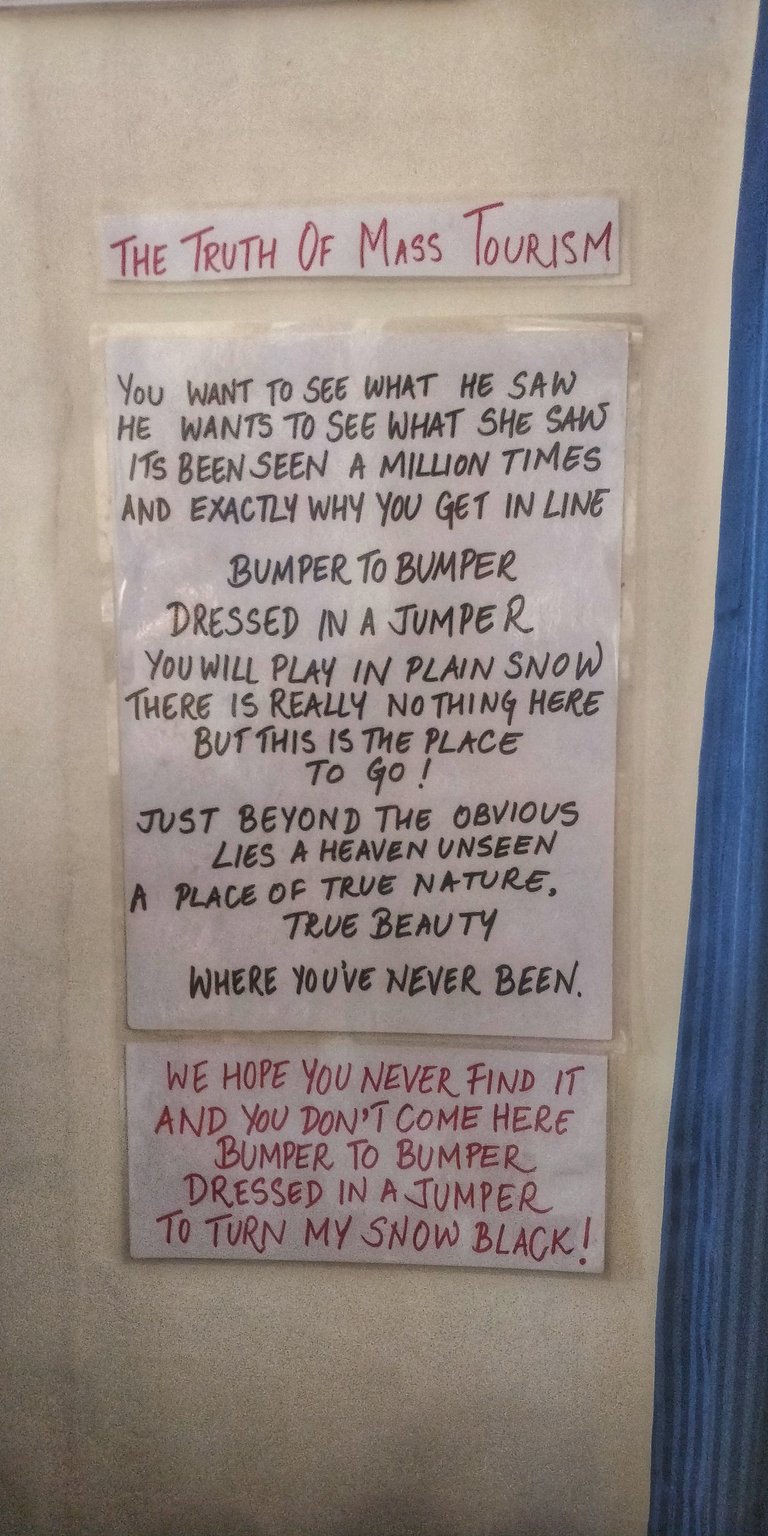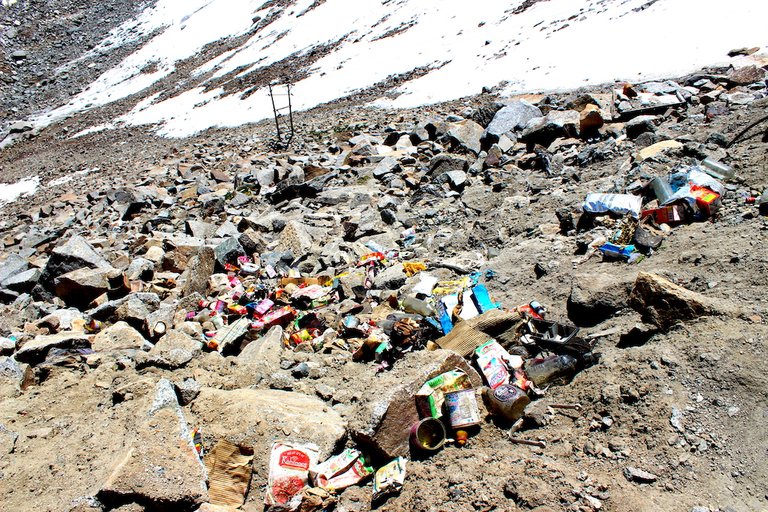I am an avid user of Instagram. Not only do I use it to share pictures of my travels, but I use it more to find amazing travel pictures from around the world, information about things I care about and in general, to see how vivid visuals can be in conveying a sense of beauty of the world. Most of these pictures are from travellers; all images gorgeously filtered, meticulously curated and the setting not missing a beat; tailor made for likes and sharing.
What all of these have done is to merely capture only a very niche, polished and perfect version of travel and its various offerings. As travellers, we contribute to the local economy of a place. Hotels, food, souvenirs, locations, transport - the money trickles down to the local economy and generally helps everyone. But the question that needs to be asked is - Have we become immune or blind to the toll that our travel has on the environment?

The Changthang Desert. The isolation of this place means that any plastic that is thrown away here will simply remain here forever. And yes, we did find plastic bottles, wrappers and straws.
Let's take a look at the amount of plastic the average traveller would use. I am talking about plastic cutlery, the coffee cups at Starbucks, food wrappings, snack packets, and the worse culprit of them all - soft drink and water bottles. All of these get used ONCE before thrown into the trash.
Plastic has been the boon and bane of our life. The versatility it adds is simply unbeatable. The advantages it has are numerous and simply cannot be lived without. But plastic comes with a dark side - eternal life. When I say eternal life of plastic, I mean to say that it will never, ever, go away. According to research, all of the plastic produced since 1950 to 2016 is a staggering 350 million metric tonnes. AND THEY ARE ALL STILL THERE.
I recently got back from a month long road trip to Ladakh and the high Himalayas of India. Of course, 30 days on the road entails many necessities and most of them have some sort of plastic associated with them. We were three people going around Ladakh, Changthang and Spiti Valley on motorcycles and as it is, our gear was limited and whatever extra we needed, we had to buy on the road.
Ladakh is a high altitude cold desert, and it is one of the most fragile landscapes on the planet. Everything is delicately balanced in beautiful harmony. There are no excesses. Yet, what I have noticed on my road trip (not just to Ladakh, but any and all places I have gone) is how wasteful our consumption can get and how easy it is to be wasteful. As consumers, we seem to have become immune to how ecologically detrimental our consumerism is, either out of ignorance or deliberation.
Trash on KhardungLa, one of the highest motorable roads in the world. At this altitude (17,800+ feet) collection of such waste is difficult. Recycling is not even thought of.
Coke cans, empty wrappers of lays, snacks, Maggi and what not, disposable water bottles, plastic spoons - the list is small, but the quantities are in staggering numbers. When we visited KhardungLa, one of the highest motorable roads in the world, we only had to peek over the edge to see the vast quantities of garbage thrown over the mountain. They were all there, and they will most likely continue to be there. This was senseless disposal and mindless tourism at its worse. But does being mindful of where we throw our trash the solution? I think not. Because, you see, throwing trash in the can is all good, but where does it go from there is the question. According to estimates and research, 80-90% of the plastic that we use and throw away DOES NOT GET RECYCLED. The world production plastic in 2016 was 280 millions. Which translates to the fact that 252 million tones dose not get recycled. Where do they go?
Landfills and more likely, the oceans.
Which brings me back to the question - what is the ecological cost of travelling?
During our Ladakh road trip, we estimated that we would on an average use three litres of water a day for our drinking purposes. That would be three bottles per day per person; Nine bottles a day for the three of us. 225 bottles over 25 days. That would be 225 bottles thrown away after being used only once.
Now, Ladakh gets a staggering 200 thousand tourists during the peak season of travel. That is more than double the population of the entire region. Drop the average to two bottles a day per traveller and that is a staggering 400 thousand water bottles thrown away per year during peak season alone. I take water bottles as an example because they are the most evident requirement. Even in the most isolated, cold deserts of the Changthang, I have come across a water bottle lying harmlessly on the ground, an intruder in an otherwise naturally balanced landscape. And this bottle will continue to be there forever, blown across by the wind and covered by snow. But it will be there.
As tourists and travellers, I believe we all have responsibilities to the environment when we travel. We need to be more mindful of the places we are in. Simply dropping the plastic in the trash does not help. We have to understand the effort that goes into recycling them, or to even clear them from these places that are so delicate and far away from any proper source of recycling facilities. This is a need that will only be possible if more and more travellers start asking questions, and remember that every time they buy that bottle of soft drink, water or that packet of snacks, the plastic will go into the bin and most likely into a landfill or the ocean.

By the world famous Pangong Tso, on the trail to the Changthang Desert. Notice the plastic bottle of Coca Cola in the frame?
We wanted to contribute as minimally as we can to the plastic usage on our roadtrip. The first thing we did was to buy reusable water bottles with inbuilt water filters so that we could get clean drinking water everywhere while we were on the road. These filters last a 1000 litres of purification and when done, would be recycled by the company that produces them - Lifestraw. We agreed that we would buy water only if there was no other option to get water. Out plastic water bottle count over 25 days was three bottles. Eating Maggi at the world's highest cafe at KhardungLa sounds all fancy, but we restricted ourselves to the minimum - two plates for the three of us and one set of cutlery. We asked the cafe to provide us our second plate in the same plastic plate that they had given us before.
Any and all snacks that we brought (Which was not that much, by the way. We preferred to eat something at the restaurant or takeaway something in a box instead of snacks) was kept aside in our saddlebags, and disposed off in Delhi where we would at least be sure that some sort of recycling could happen.
When I look back at this, I realise how much our actions matter and how conscious consumption can not only reduce the amount of plastic, but also ensure that the fragile and delicate landscapes that we go to for joy and fulfilment remain clean, pristine and natural for generations to come.
It is up to us to take solid action, and upto producers to ensure they take the lead in moving away from plastic for their products. The next time you travel, please think, and be deliberate in your actions. It will do this earth a whole lot of good.
And in case, you want to know the truth of mass tourism, this picture tells it all.

If you liked this post, do follow and upvote. Check out some of my other posts via the links below.
Read some of my opinion posts via the links below:
Opinions - Tourist or Traveler?
Opinions - The price of overwhelming freedom
Opinions - The similarity between motorcycle racers and fighter pilots
Opinions - Going fast to slow down time
Opinions - We need to travel to develop empathy
Opinions - The importance of anchors in our lives
Opinions - Our toys have not changed. They have only gotten bigger
Opinions - Of Mortal Dreams and Motorcycles
Opinions - Of motorcycles and love stories
Of Scuba Diving and Motorcycle Racers - A slow life between fast lanes?
That is all for now, cheers!


